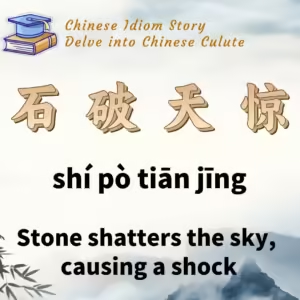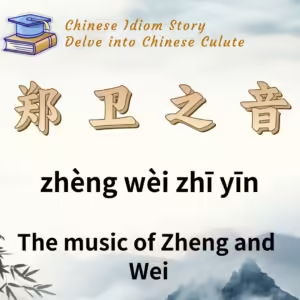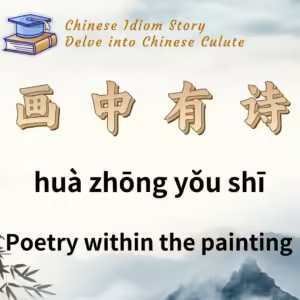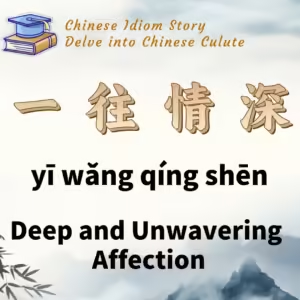
Chinese Idiom: 石破天惊 (Shi Po Tian Jing)
English Translation: Stone shatters the sky, causing a shock
pīn yīn: shí pò tiān jīng
Idiom Meaning: This idiom is used to describe something that is unexpectedly extraordinary and shocking, often in the context of a remarkable idea, piece of writing, or event that has a powerful impact.
Historical Source: Li Ping Plays the Konghou (《李凭箜篌引》)
Idiom Story:
Li He’s poem, Li Ping Plays the Konghou, is a masterpiece of romanticism, employing rich imagination and artistic exaggeration to depict the captivating and magical effects of Li Ping’s music. The poem comprises fourteen lines, each filled with vivid imagery and references to mythology and nature:
吴丝蜀桐张高秋,空山凝云颓不流。
江娥啼竹素女愁,李凭中国弹箜篌。
昆山玉碎凤凰叫,芙蓉泣露香兰笑。
十二门前融冷光,二十三丝动紫皇。
女娲炼石补天处,石破天惊逗秋雨。
梦入神山教神妪,老鱼跳波瘦蛟舞。
吴质不眠倚桂树,露脚斜飞湿寒兔。
The poem’s imagery reflects the powerful effect of the music, suggesting that the sounds Li Ping produced could halt the movement of clouds, bring mythical figures to tears, and even shatter the heavens like a broken piece of jade from Kunlun Mountain. The line “石破天惊逗秋雨” describes how the music was so intense and otherworldly that it caused the sky to crack and rain to fall, metaphorically implying that the music was astonishing and earth-shattering.
The phrase “石破天惊” was later extracted from this poem and evolved into an idiom used to describe anything that is extraordinarily surprising or revolutionary. It is often applied to groundbreaking works of literature, bold opinions, or unexpected developments that leave a significant impact on the world.






